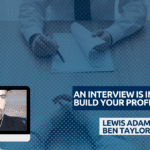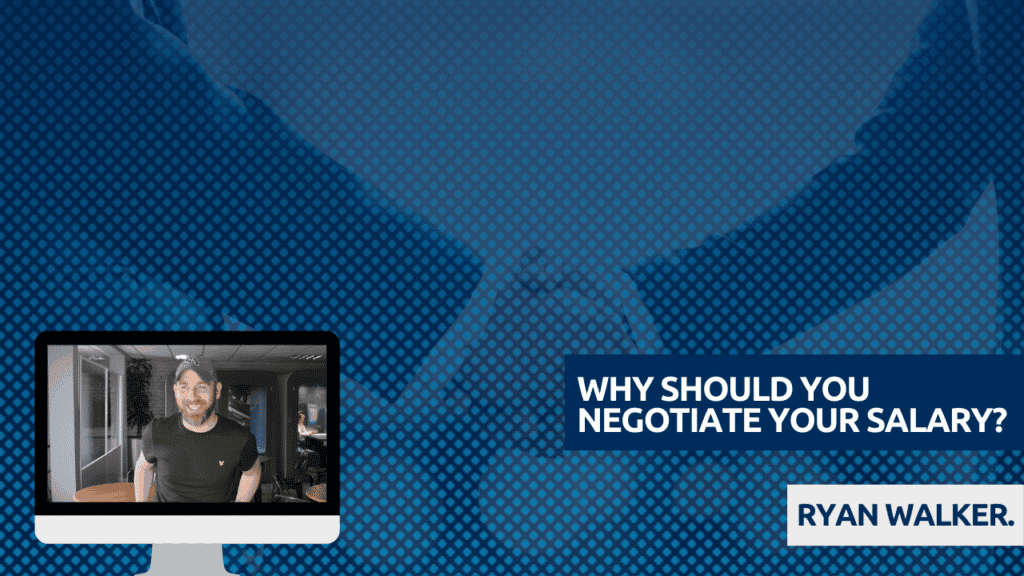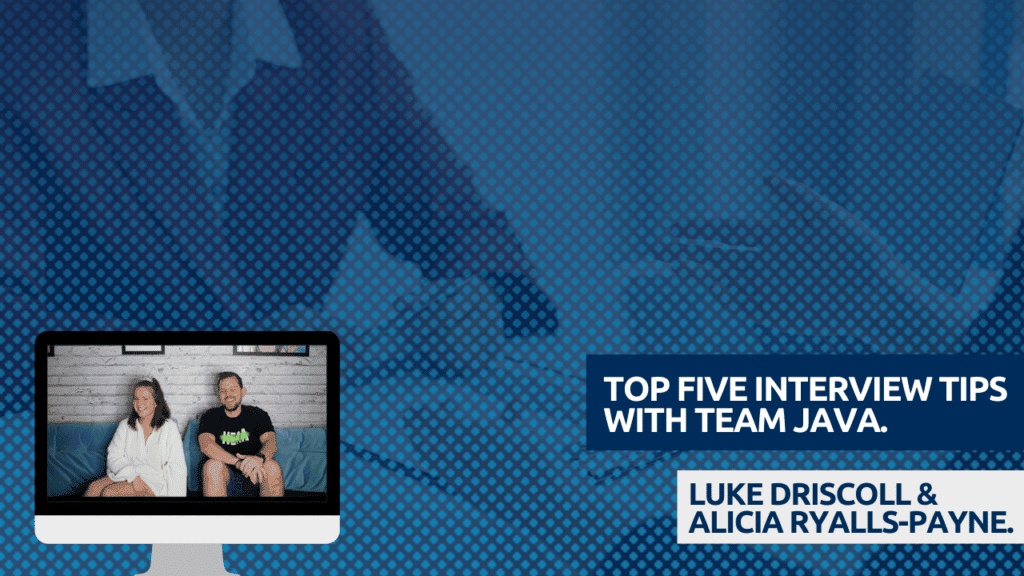Building a Strong Profile

‘An interview is insufficient to truly assess someone’s qualities’… What do you think?
In this video of Preparing the Unprepared Lewis Adams-Dunstan and Ben Taylor discuss other ways to create more exposure by using all the platforms and avenues possible.
If you’re looking to build your profile then you NEED to watch this video!
Transcription:
Ben Taylor: There’s a lot of value that can come from networking and that’s why I’ll encourage people to go and present at a meetup, which can feel very intimidating for someone who is new to the industry.
Lewis: For anyone, just in general, it can be but the value prop is huge.
Ben: Well, interviews are too short and a resume is much shorter. So, a resumé, you’re going to get 10 to 30 seconds of someone looking at it and with algorithms now, maybe you don’t even get looked at because your GPA or something is just too low you get screened out, but if you do a meetup, it’s a 30 to 60-minute interview to a panel. You’ve got 90 people in the audience. You had time to prepare. You came with your own questions. It’s the perfect interview. You came up with the questions. You came with the answers. You’ve got a captive audience of 90 people for 90 minutes. Here’s your interview. It’ll be better than any interview that you’ve ever had because every interview is rushed. It’s not enough time and even after doing the hiring, I would still say the interview is insufficient to truly assess someone’s qualities. It’s our best attempt. But we don’t have unlimited time and unlimited emotion. When you’re hiring, there’s this emotional leakage that is happening where people get burned out. So if I’m filling a role and I’m doing phone screens and interviewing over time, I reach this point of desperation that I just need to hire someone and it’s not fun for me. Getting someone is fun when you finally agree, especially if they turn out to work out OK. But the process is not fun and it can be very confusing on the hiring side.
Lewis: I mean, for that exact reason, is why I’m in the job. It keeps my job alive in that respect. But, it is interesting because it just keeps coming back to that being prepared, but also creating an opportunity when it comes to MeetUps or other ways to create more exposure. Use all of the platforms and avenues that you can. So, from your perspective, suggestions of ways people can do that, perhaps, ways that you’ve done that, keynote speaking events, MeetUps, LinkedIn. Anything else that has helped you along your way in your career?
Ben: I won a data competition once. It was a local one so that was helpful to get your name out. People do ask about Kaggle, you know, do I need to go invest time in Kaggle and win? And I’ve hired someone who did really well at Kaggle, they were top 60 in the world. But for most people, I think it’s a good place if you’re learning and you kind of want to go poke around. But I would not rely on your Kaggle score to get a job because you really have to be top one percent like you somehow have to break into the top thousand. Maybe that’s not true and some people might disagree. I wouldn’t want beginners to be intimidated if they jump into Kaggle and they realize a month later they’re the end of the pack. That doesn’t mean that they don’t have job options. But it does mean that Kaggle is not their ticket to a new job.
Consulting can be useful. Internships can be useful. I get a lot of flack for this one, but I do encourage people to engage on open source projects. If you can commit. There’s a lot of low-hanging fruit in the open-source community with libraries that people use every day. And if you can find opportunities to improve it. Write a blog about it there. There are people out there. I know Amazon’s always looking for good blog content on MXNet or Gluon and potentially, I don’t know if Facebook runs a blog on Pytorch, but there are big-name companies out there that if you have a compelling solution with a certain software platform, you could potentially run a blog and associate with the company. So, like, if I wanted to get into Amazon right now, into their deep learning group as a new student or someone in the market, I might be very aggressive with my contributions into MXNet or if I wanted to go work for Facebook, I might be very aggressive with my contributions and the Pytorch. So I don’t think this interview scenario has ever happened. Maybe it has. But imagine the interview if I’m interviewing with you and I already know what your team uses. I know the stack. I’ve done my homework and I’ve done my research. And if I say, this is a simplistic example, but if I said “I notice you guys use pandas” and you say, “Yeah, we use pandas a lot.” And if I said, “Are you familiar with the function get dummies?” And everyone’s familiar with that one.
NÄCHSTE SCHRITTE.










